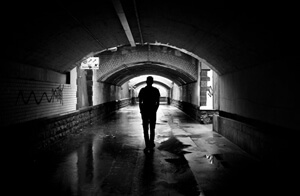The Weaker Sex: Author's Note

Below is the author's note I included in the back of The Weaker Sex, the second in my London Killing series of thrillers, which begins with my novella The Wait. I wanted to publish it here to share a bit more about why and how I wrote The Weaker Sex because it was not a linear or easy journey. To say I learned a lot writing this book is a grand understatement and it's important I acknowledge some of the lessons I had to learn in order to make this book what it now is.
If you get the ebook version you'll get this author's note and also another short essay about what this book taught me as a writer as well as what I learned about the issues The Weaker Sex touches on. You'll also get three free short stories to introduce you to my three collections of short stories, Shy Feet, London Eyes, and Nine Women. The Weaker Sex is also available to buy as a paperback but it doesn't include these bonus extras sadly. Also, for more free stories, you can sign up to my newsletter.
But for now, read on to gauge a bit more about what this book is about, what I learnt writing it, and what you can expect if you want to get your hands on a copy. P.S. There aren't any plot spoilers here but if you want to go in completely blind to what the book is about, I recommend reading it first, and even better, I recommend reading The Wait first as it's the preceding novella.
Author's Note in The Weaker Sex
The Weaker Sex is a work of fiction, and as such, I urge you to remember that it is made up, untrue and not at all real. However, as most fiction does, my goal with The Weaker Sex is to invite you to think about very real issues, and to consider almost realistic characters in possibly true-to-life situations.
Among the very real topics this book is about is sex work, and I wanted to write a short note to highlight some important things I would love you to keep in mind or take away from this book when thinking about sex work in the future.
The Problems with (Me Writing About) Sex Work
Firstly, it’s imperative I clarify that I am not a sex worker, and thus, by publishing a book that is about sex work, I am presented with a very real and very true problem. In addition to denial of worker's (and often human) rights, sex workers are routinely overlooked, ignored, uninvited or dismissed when it comes to conversations about sex work. As a non-sex worker, my writing a book - albeit a work of fiction - that has sex work as a central theme is in itself problematic.
Furthermore, I want to acknowledge that for a socially- and economically privileged white women who presents herself as an ally to sex workers to then go on to write a work of fiction in which sex workers commit serious crimes, there is another layer of potentially problematic behaviour. I will never argue with anybody who wishes to raise these two points.
I battled with this uncomfortable truth for most of the first three years I worked on The Weaker Sex starting in 2017, and it was my main reason I abandoned the manuscript once the first draft was written. Following that decision I spent time educating myself more on the struggles, stories, and many contradictory but all valid experiences of sex workers and this helped me to see where my original narrative went wrong. It's hard to say if it was because of or in spite of this that Emma's story never left my mind completely but eventually I came to realise that with The Weaker Sex, I was being presented with an opportunity.
Feminism and Sex Work
I have called myself a feminist since I first understood what the word meant, and yet, I must admit that until recent years, I long harboured negative opinions and harmful misunderstandings about sex work and sex workers. When you consider the vast majority of sex workers are women, it is undeniable that sex work is a feminist issue, and indeed, historically feminist activists and scholars have made it so. However, most have done so in ways that, at best, exclude sex workers themselves, and at worse exploit, dehumanise, and vilify them.
One quote I have always heard about sex work, and I'm sure you have too, is that it is the oldest profession in the world. It seems pointless and wasteful (and frankly quite passive aggressive) to debate whether sex workers "should" exist. Sex workers will always exist in a myriad ways. Indeed, our online world that has catapulted the porn industry, and more recently introduced sites like Only Fans making more people take up sex work in various forms, is cementing the sex industry more and more firmly in our modern lifestyles. So any "feminist discussion" about how we can eradicate sex work feels not only redundant but also damaging to the welfare of the most vulnerable service-providing sex workers as they continue to work in a grey area when it comes to the law, the consequences of which mean they do not have basic employment rights, job security, and/or access to work and live in safe spaces. That’s not to mention the isolation, abuse and social obstacles they encounter at the hands of the damaging stigma that exists surrounding sex work.
It should be stressed here that it is predominantly white feminism - the same brand of feminism that has repeatedly failed Black and Brown women - that has historically let down sex workers and there's a reason The Weaker Sex points Emma, and the reader, in the direction of inimitable Black feminist writers in order to broaden knowledge and understanding of what true intersectional feminism looks like.
While The Weaker Sex tackles some of these above issues head on - and the journey that Emma goes on as she "wakes up" to how feminism has failed sex workers is very deliberate - I am compelled to highlight that this is far from the only challenges sex workers encounter. The book is intentionally vague about how Rachel got into sex work - because in some respects it should be irrelevant, she is still entitled to rights and protection by the law, she is still deserving of love, respect and care - but of course, it's important to acknowledge that many sex workers do not do this work by choice but rather out of economic necessity, and yes, others are forced into it too through violence, coercion, and trafficking.
What We Don't Talk About When We Talk About Sex Work
Again, the omission of talking about sex trafficking was by design because it's a topic that too often gets bundled up with discussions about sex work. The outcome of this is that sex work is perceived as a similar human rights issue which then overlooks the reality that while they do overlap in some senses, they are not the same problem at all and this oversight harms victims of sex and human trafficking and at the same time ignores the real needs of sex workers at great cost. Absolutely, abolition of sex (and human) trafficking should be our goal, but the same solution should not therefore automatically apply to sex work because that is not what sex workers are asking for. It's this reluctance to listen to sex workers - at all levels of society, from the law to feminism, from the media to you and me - that causes the most damage.
There are many other associated issues I omitted - like how trans sex workers make up a frightening majority of the numbers of both trans murders and sex worker murders, and how a disproportionate number of immigrants, and Black and Brown people are sex workers - because they are all deserving enough of a more thorough exploration than what I felt capable of offering in this book. There are also other sides of sex work that I think need more air time, like sex work being one of the most progressive and accessible industries for queer and disabled people to work in, the role of sex workers in providing so-called intimacy and sex care to the disabled community, how for decades sex workers have championed the now very trendy sex positivity movement, and indeed, how (trans) sex workers were incremental to founding LGBTQ Pride marches and celebrations around the world back in the 1960s. But again, these all felt too big and too important for me to only dip into in a brief moment in a fast-paced suspense novel.
All this is to reiterate, while the story you have just read is completely fictional, the struggle, challenges and harm sex workers experience at the hands of institutions, their own communities, the media, and the general public are all very real and very urgently require examination, education and evolution. This reality has not materialised without reason, of course, and it was definitely my aim to highlight some of the causes - misogyny, rape culture, sexual repression, toxic masculinity - in The Weaker Sex.
Further Reading for Further Learning
Therefore, alongside the suspense and the adventure you hopefully enjoyed, I hope The Weaker Sex was also food for thought and maybe some action too. With this in mind you can find below some books and resources I found very helpful in deepening my knowledge and understanding of both sex work and its maltreatment by most at all levels of society and community.
Revolting Prostitutes: The Fight for Sex Workers' Rights by Juno Mac and Molly Smith
Harlots, Whores & Hackabouts: A History of Sex for Sale by Dr Kate Lister
Thriving in Sex Work by Lola Davina
Sex Work Matters by Melissa Hope Ditmore
Sex Lies & Statistics by Dr Brooke Magnanti
A Curious History of Sex by Dr Kate Lister
And to find out ways you can actively support sex workers follow @SexWorkHive, @ProstitutesColl and @NationalUglyMug on Twitter and go to their respective websites.
You can also donate to National Ugly Mugs to provide support to sex workers and financial assistance to help them end violence against sex workers. Find out more at https://nationaluglymugs.org/donate/. I am also proud to donate 50p from every copy of The Weaker Sex purchased to this fund.

Frances M. Thompson
Find Frankie on Facebook, Twitter, Instagram, Pinterest, and Google+.
 On Writing: My Writing & Publishing Plans for 2023
On Writing: My Writing & Publishing Plans for 2023 The Moon Also Rises: Read a Free Extract
The Moon Also Rises: Read a Free Extract The Weaker Sex: Read the Prologue
The Weaker Sex: Read the Prologue My Thoughts: The Life-Enhancing Joy of Romance Novels
My Thoughts: The Life-Enhancing Joy of Romance Novels All About My Next Book: Five Sunsets
All About My Next Book: Five Sunsets About the Blog & Frankie
About the Blog & Frankie Welcome to My Amsterdam Travel Blog!
Welcome to My Amsterdam Travel Blog! Welcome to My Luxury Family Travel Blog!
Welcome to My Luxury Family Travel Blog! Welcome to My Writing Blog!
Welcome to My Writing Blog! Lover Mother Other: Poems - Out Now!
Lover Mother Other: Poems - Out Now! I Write Stories That Move You
I Write Stories That Move You Order WriteNOW Cards - Affirmation Cards for Writers
Order WriteNOW Cards - Affirmation Cards for Writers Work With Me
Work With Me